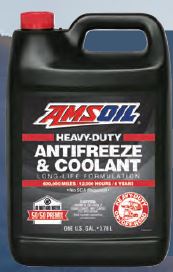Generally with todays vehicles it’s not an issue but you should check the particular recommendations in the owners manual John Baker | Oct 08, 2018 11:51 AM Motorists sometimes ask if they should use a lighter viscosity of motor oil once winter arrives. Yes – provided your vehicle manufacturer allows it. Run out to your […]
You are browsing archives for
Tag: diesel
Should You Use Diesel Competition Oil?
Should You Use Diesel Competition Oil? Mark Nyholm|Apr 10, 2018 11:44 AM April is here, and for those who love to spend time at the drag strip challenging their reaction time, on a dirt strip hooked to a sled, or tied down on a roller dyno grunting for power, the diesel competition season is upon […]
A Simple Way To Fight Cylinder-Liner Cav...
A SIMPLE WAY TO FIGHT CYLINDER-LINER CAVITATION In extreme cases, cylinder-liner cavitation in diesels can allow oil and coolant to mix. Then it’s just a matter of time until engine failure. Here’s what you can do to help ensure that doesn’t happen. Most diesel engines are designed with replaceable cast-iron cylinder liners that are pressed […]
Ultimate Protection for Competition Dies...
Ultimate Protection for Competition Diesel Engines Whether competing in sled pulls, drag races or dyno challenges, competitors using DOMINATOR® 20W-50 Competition Diesel Oil enjoy the confidence and security that come with providing their diesel trucks maximum protection and performance. Racing and high-performance diesel engines are modified to deliver maximum horsepower and torque. Their powerful designs create shearing forces […]



